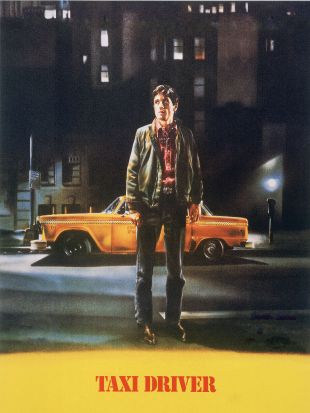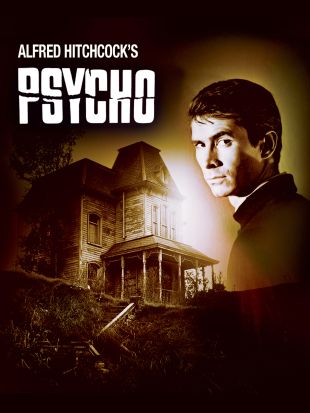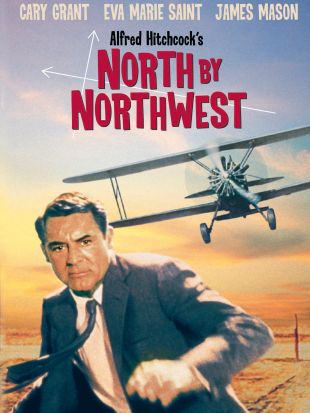A composition prize winner at age 13, Manhattan-born composer Bernard Herrmann studied at New York University and Julliard before accepting his first conductor's post at age 20. While he wrote for virtually every branch of the musical theater -- ballet, concert hall, opera -- Herrmann's latter-day fame rests squarely on his prolific film work. As one of several composer/conductors retained by the CBS radio network in the mid-1930s (he was briefly married to radio writer Lucille Fletcher, of Sorry Wrong Number fame), Herrmann worked on Orson Welles' Mercury Theatre of the Air. When Welles headed to Hollywood to direct Citizen Kane (1941), he invited Herrmann to write the film's score, promising the young composer full artistic freedom. Welles so respected Herrmann's talent that many scenes in Kane were tailored to fit the music, rather than the other way around. Herrmann capped his first year in Hollywood with an Academy Award -- not for Kane, but for another RKO production, All That Money Can Buy (1941). He was engaged to score Welles' second picture, The Magnificent Ambersons (1942), but angrily demanded that his name be removed from the credits after his music was extensively rearranged by RKO contractee Roy Webb. The range of Herrmann's talent was so enormous that he remained in demand until his death in 1975. With Jane Eyre (1944), Herrmann began a lengthy association with 20th Century-Fox, best exemplified by the scores for such films as The Ghost and Mrs. Muir (1947), Five Fingers (1952), The Snows of Kilimanjaro (1953) and The Man in the Grey Flannel Suit (1954). At his best, Herrmann was tirelessly creative, ever finding new ways to match his scores to the mood and locale of his films. As one of many examples, Herrmann wrote an orchestration incorporating authentic native African musical instruments for the 1954 jungle actioner White Witch Doctor. Many of his innovations have since become cinematic clichés, notably his vibraphonic score for the 1951 sci-fi classic The Day the Earth Stood Still and the screeching violins for 1960's Psycho. In the 1950s, Herrmann inaugurated two long associations with a brace of notable filmmakers: special-effects maven Ray Harryhausen (Seventh Voyage of Sinbad [1957], Mysterious Island [1961], Three Worlds of Gulliver [1962], Jason and the Argonauts [1963]) and suspense specialist Alfred Hitchcock (The Trouble With Harry [1955], The Wrong Man [1956], Vertigo [1958], North by Northwest [1959], Psycho [1960], Marnie [1964] and The Birds [1963], for which Herrmann orchestrated genuine bird sounds). After acrimoniously severing his ties with Hitchcock over a dispute arising from the score of 1966's Torn Curtain, Herrmann accepted assignments from a number of Hitchcock emulators, including Francois Truffaut (The Bride Wore Black [1967]), Larry Cohen (It's Alive! [1974]), Brian De Palma (Obsession [1976]) and Martin Scorsese (Taxi Driver [1976]). Herrmann completed the jazz Driver score on the day he died, but received his final credit for an original score posthumously, on the 1978 La More Al Lavoro. Herrmann also kept busy on TV, principally on Rod Serling's Twilight Zone series; for the 1962 Zone episode "Little Girl Lost," the composer was billed above the director.
Bernard Herrmann
Share on
Biography by AllMovie
Movie Highlights
Factsheet
- Won a $100 composition prize at age 13.
- Appointed staff conductor of the CBS Symphony in 1935; premiered works by Ralph Vaughn Williams and Charles Ives as chief conductor (1940-51).
- Earned an Oscar nomination for his first movie orchestration, the 1941 Orson Welles classic Citizen Kane; also collaborated with Welles on the 1938 Mercury Players radio drama The War of the Worlds.
- Won an Oscar for his second movie orchestration, The Devil and Daniel Webster (1941).
- Composed the scores for eight Alfred Hitchcock films (but earned no Oscar nominations for them); persuaded Hitchcock to use music in the Psycho shower scene.
- Died the night after completing sound editing for Taxi Driver (1976).
- Is pictured on a 33-cent U.S. postage stamp (one of six Hollywood composers honored by the Postal Service in 1999).
- Two of his scores (Psycho and Vertigo) are on the American Film Institute's 2005 Top 25 list.


